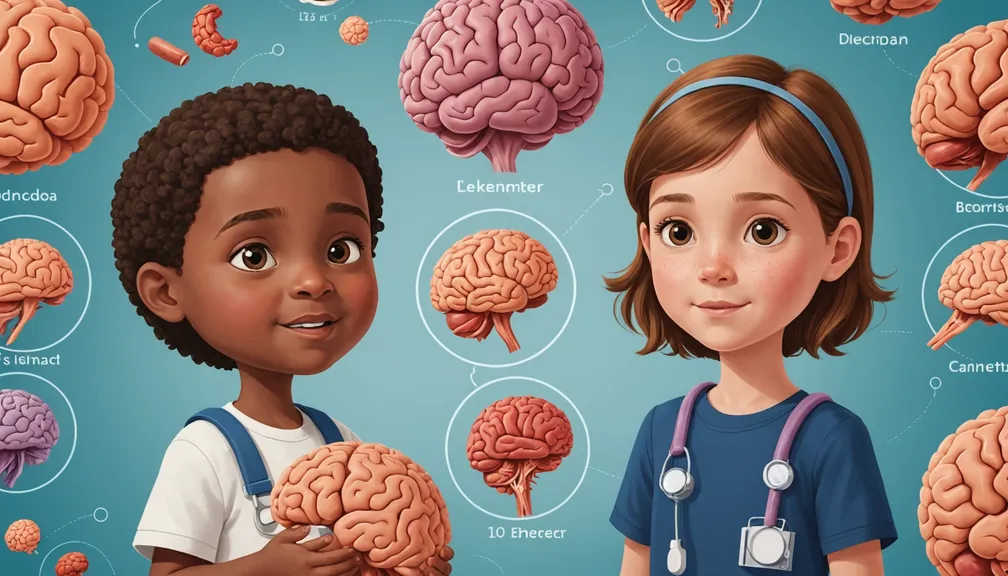Understanding Your Child’s Emotions
Children facing cancer may experience a whirlwind of emotions, including fear, sadness, anger, and confusion. Recognizing these feelings is the first step in providing the support they need.
- Fear and Anxiety
- What it looks like: Clinging to parents, nightmares, and physical symptoms like stomachaches.
-
How to help: Reassure your child, maintain routines, and provide age-appropriate information about their condition.
-
Sadness and Depression
- What it looks like: Withdrawal from friends and activities, persistent crying, and changes in appetite.
-
How to help: Encourage expression of feelings, seek professional counseling if needed, and spend quality time together.
-
Anger and Frustration
- What it looks like: Irritability, outbursts, and resistance to treatment.
- How to help: Validate their feelings, establish open communication, and provide outlets for their frustration, such as art or physical activity.
Effective Communication Strategies
Open and honest communication fosters trust and helps your child feel supported.
- Use Simple Language
- Explain medical procedures and diagnoses in terms your child can understand.
-
Avoid medical jargon that may confuse or overwhelm them.
-
Encourage Questions
- Let your child know it’s okay to ask questions about their illness and treatment.
-
Answer honestly, while considering their age and comprehension level.
-
Active Listening
- Give your child your full attention when they speak.
- Acknowledge their feelings without judgment or immediate problem-solving.
Creating a Comforting Environment
A stable and nurturing environment can significantly impact your child’s emotional well-being.
- Maintain Routines
- Keep daily schedules as consistent as possible to provide a sense of normalcy.
-
Incorporate familiar activities and traditions to offer comfort.
-
Personal Space
- Allow your child to have a personal space where they feel safe and can retreat when needed.
-
Respect their need for privacy and alone time.
-
Positive Distractions
- Engage in activities your child enjoys, such as reading, playing games, or watching favorite shows.
- Encourage hobbies that can provide a mental break from treatment stress.
Building a Support System
Having a network of supportive individuals can alleviate the emotional burden on both you and your child.
- Family and Friends
- Involve trusted family members and friends in your child’s care and support.
-
Share responsibilities to avoid caregiver burnout.
-
Support Groups
- Connect with other families going through similar experiences.
-
Share stories, strategies, and emotional support in a safe environment.
-
Professional Support
- Child Psychologists or Counselors
- Specialize in helping children cope with illness and emotional challenges.
- Social Workers
- Assist with navigating healthcare systems, accessing resources, and providing emotional support.
- Child Life Specialists
- Help children understand and manage their hospitalization through play and education.
Encouraging Emotional Expression
Allowing your child to express their emotions can lead to better emotional health and resilience.
- Art and Play Therapy
- Use creative activities to help your child express feelings they might not verbalize.
-
Encourage drawing, painting, or playing with toys as outlets for emotions.
-
Journaling
- For older children, writing down thoughts and feelings can be therapeutic.
-
Encourage regular journaling to track emotional changes and progress.
-
Physical Activity
- Encourage activities like walking, swimming, or gentle yoga to release tension and improve mood.
- Adapt activities to your child’s energy levels and physical condition.
Managing Your Own Emotions
Caring for a child with cancer is emotionally taxing. Taking care of your own emotional health is crucial for providing effective support.
- Seek Support
- Connect with support groups for parents to share experiences and coping strategies.
-
Consider individual counseling to process your emotions and reduce stress.
-
Self-Care
- Prioritize activities that rejuvenate you, such as reading, exercising, or hobbies.
-
Ensure you get adequate rest and maintain a healthy diet.
-
Communication
- Openly discuss your feelings with trusted friends, family members, or a counselor.
- Model healthy emotional expression for your child.
Practical Tips for Daily Life
Implementing practical strategies can ease daily challenges and support your child’s emotional well-being.
- Flexible Scheduling
- Adapt daily routines to accommodate treatment schedules and your child’s energy levels.
-
Allow for flexibility in plans to reduce stress and frustration.
-
Educational Support
- Work with your child’s school to ensure they receive necessary accommodations.
-
Consider online schooling or tutoring if your child is unable to attend school regularly.
-
Healthy Lifestyle
- Encourage balanced meals, sufficient sleep, and gentle exercise to support overall well-being.
- Limit exposure to negative news or media that may increase anxiety.
Recognizing When to Seek Professional Help
Sometimes, professional intervention is necessary to address complex emotional challenges.
- Signs Your Child Needs Help
- Persistent sadness or withdrawal
- Extreme anxiety or fear
- Difficulty coping with daily activities
-
Suicidal thoughts or behaviors
-
When to Reach Out
- If your child exhibits any of the above signs, consult a mental health professional.
- Regular check-ins with your child’s healthcare team can help identify emerging emotional needs.
Utilizing Healthcare Professionals
A multidisciplinary team can provide comprehensive support for your child’s emotional and physical health.
- Pediatric Oncologists
-
Specialized doctors who manage cancer treatments and coordinate care.
-
Nurses
-
Provide daily care, monitor symptoms, and offer emotional support to both the child and family.
-
Child Psychologists or Counselors
-
Offer therapy and coping strategies tailored to your child’s needs.
-
Social Workers
-
Assist with accessing resources, financial aid, and connecting with support services.
-
Child Life Specialists
- Use therapeutic play and activities to help children understand and manage their healthcare experiences.
Supporting your child emotionally through their cancer journey involves understanding their feelings, maintaining open communication, creating a comforting environment, building a strong support system, encouraging emotional expression, managing your own emotions, implementing practical daily strategies, recognizing when professional help is needed, and utilizing a team of healthcare professionals. By prioritizing these aspects, you can help your child navigate their emotional landscape with resilience and hope.






